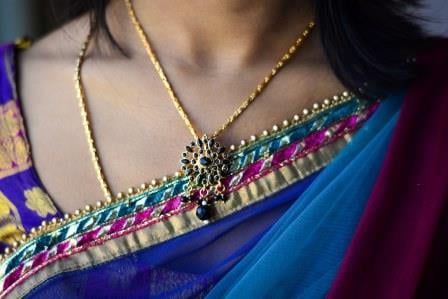6 Things to Know About Indian Diwali or Festival of Lights
You may have just missed the Hindu holiday of Diwali at the end of October, meaning that you missed out on a full-force Indian celebration. However, it’s never too late to start planning for next year!
If you’ve ever been to India you know it’s a country that combines the beautiful and the chaotic and Diwali is a perfect example of that. Locals love a good celebration and if you’re in India during Diwali you’ll want to make sure to take part in all the festivities. Check out these 6 things you need to know about the Festival of Lights so you can celebrate it like a true local!

Photo via Flickr
1. Lights are important.
There’s a reason why Diwali is also referred to as the Festival of Lights, and that’s because all of India seems to light up for this holiday! Families will spend time preparing their homes for a proper Diwali celebration. This includes a lot of cleaning, but most importantly it’s a chance to brighten up the house. Lights are hung in windows and off of balconies, and on the eve of Diwali oil lamps are lit and placed around the home or business. These lamps are a symbol of the victory of light over darkness, or good over evil.
2. Bring a golden trinket.
Gold is considered to be auspicious in Indian culture, especially to Hindus and Jains. Giving gold to a bride and groom at their wedding is looked upon as a way to gift them your good wishes, and owning gold (even if you rarely wear it) is a symbol of prosperity and status. One of the times of year in which Indian consumers tend to buy the most gold is during Diwali. Get into the spirit of things and pick up a trinket or two for yourself. After all, the Festival of Lights means that you have to shimmer and sparkle too!

Photo via Flickr
3. New clothes are a must.
One of the best things about Diwali is that it offers an opportunity to go shopping. One of the traditions surrounding the holiday is that everyone celebrating must wear a new outfit. Days before Diwali, shops around India are packed full of families looking to purchase new sets of clothes. It can be a crazy experience to shop pre-Diwali, but also fun because you get to hunt for the brightest, most celebratory outfit you can find!
Learning a new language for your next trip? Check out our free placement test to see how your level measures up!
4. A sweet tooth for the holiday.
Like any other holiday, food is a big part of celebrating Diwali. If you visit friends and acquaintances during Diwali, you’ll be met with delicious Hindu meals and a copious amount of sweets. Diwali sweets are mouthwateringly good and can be more than a little addictive. Much like eating pie is a part of celebrating Thanksgiving in the U.S., you can’t enjoy a good Diwali celebration without the sweets! Don’t worry, you can always start your diet once the five-day celebration is over with, right?

Photo via Flickr
5. Fireworks, fireworks, fireworks.
If you ask an Indian what sound he or she associates most with Diwali, they’ll probably tell you it’s the popping and snapping of fireworks. During this celebration, people turn out to the streets and rooftops to set off firecrackers. Imagine millions of people lighting fireworks at the same time; the din is incredible! While fireworks are considered an enjoyable and important part of Diwali, there are some locals who are encouraging more eco-friendly, firecracker-free festivals. Remember, fireworks can be bad for the environment and terrifying to animals, so use them sparsely!
6. It’s a religious holiday.
All the fireworks, sweets, and shopping may distract you from Diwali’s real purpose, so be sure to remind yourself that at the end of the day it is a religious festival. If you are staying with an Indian family you may have to take part in various religious rituals or pujas. This can include offering puja to Yamraj (lord of death), Lord Krishna, and the goddess Lakshmi, among others. Some traditions may vary from family to family depending on personal beliefs and so on, so just go with the flow and try to participate while being respectful at the same time.
Do you celebrate Diwali every year? If so, do you have any tips or facts you think newbies to the holiday should know? Be sure to share them with us in the comments section!
